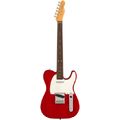Windows + Auto -Volume

Member
Posts: 42
Joined: 31 ago 2015
Since I'm running default Windows 7, I noticed some annoying auto-reduction, when listening to any source. Desktop music, online music, videos, games. The level goes up & down intuitively. How to disable:
Control Panel > Hardware & Sound > Sound
[img]https://tr4.cbsistatic.com/hub/i/r/2009/10/29/43760d99-c3b2-11e2-bc00-02911874f8c8/resize/770x/398b8fb52b1c82ef0453e98b69756ac0/hardware_1.png[/img]
Headphones/Speakers > Properties
[img]https://www.technorms.com/assets/2119-509x480.png[/img]
Enhancements > down to "Loudness Equalization".
[img]https://cdn.arstechnica.net/journals/microsoft.media/loudness1.png[/img]
I disabled all.
More useful stuff. Advanced > Default Format > 24 bit, 48ooo Hz
[ broken embedded image removed by Dick ]
16 bit 44100 Hz seems the most common WAV format. Yet I didn't change. May be worth a check and test some new arrangement
Control Panel > Hardware & Sound > Sound
[img]https://tr4.cbsistatic.com/hub/i/r/2009/10/29/43760d99-c3b2-11e2-bc00-02911874f8c8/resize/770x/398b8fb52b1c82ef0453e98b69756ac0/hardware_1.png[/img]
Headphones/Speakers > Properties
[img]https://www.technorms.com/assets/2119-509x480.png[/img]
Enhancements > down to "Loudness Equalization".
[img]https://cdn.arstechnica.net/journals/microsoft.media/loudness1.png[/img]
I disabled all.
More useful stuff. Advanced > Default Format > 24 bit, 48ooo Hz
[ broken embedded image removed by Dick ]
16 bit 44100 Hz seems the most common WAV format. Yet I didn't change. May be worth a check and test some new arrangement
+4

Member
Posts: 139
Joined: 28 nov 2013
Windows 10 update bout killed me:|
+3

Fender AV II 63 TELE RW RED TRANS
Electric Guitar

2.249 €
iThis widget links to Thomann, our affiliate partner. We may receive a commission when you purchase a product there.
Visit Shop

Member
Posts: 139
Joined: 28 nov 2013
Yeah..maybe next time🤔
+1

Member
Posts: 139
Joined: 28 nov 2013
Maybe an IPhone too..since I just posted 3 of the same replies on my Android
+2
SUPPORTER
Posts: 2942
Joined: 30 dic 2010
@fishin- I took the freedom to edit that :)
@SupJax & on topic:
This is not a windows issue at all!
The screenshots show that the settings which are being discussed here are device specific and are being treated by each devices individual driver (as indicated by the Logitech / IDT references).
It is definetly a good idea to check such soundcard or device specific settings if you really need to use the onboard soundcard - as soon as you are using some external device designed for audio recording, you will no longer need to worry about such auto-enhancements (which are probably quite common in communications headsets for good reason).
Bottom line, please don't blame windows for your choice of sound card :)
@SupJax & on topic:
This is not a windows issue at all!
The screenshots show that the settings which are being discussed here are device specific and are being treated by each devices individual driver (as indicated by the Logitech / IDT references).
It is definetly a good idea to check such soundcard or device specific settings if you really need to use the onboard soundcard - as soon as you are using some external device designed for audio recording, you will no longer need to worry about such auto-enhancements (which are probably quite common in communications headsets for good reason).
Bottom line, please don't blame windows for your choice of sound card :)
+2

Fender AV II 63 TELE RW RED TRANS
Electric Guitar

2.249 €
iThis widget links to Thomann, our affiliate partner. We may receive a commission when you purchase a product there.
Visit Shop

SUPPORTER
Posts: 920
Joined: 14 feb 2018
I really don't know enough about Microsoft Windows to comment on what might be going on there, but I'm still a strong proponent of:
https://de.wikipedia.org/wiki/EBU-Empfehlung_R_128 (German, but much better than the English version which is linked next)
https://en.wikipedia.org/wiki/EBU_R_128
https://en.wikipedia.org/wiki/LKFS
The latter is called "LUFS" around here, and the recommendations for streaming (like on Wikiloops) is -16LUFS (much like -16dB average loudness), with true peaks at around -1dB. Make that -23dB LUFS for broadcasting, which absolutely makes sense to protect us all from those loudness jumps during ad breaks (like on your typical TV station).
Lots of other links in these articles, but for a quick ("executive") summary, I also suggest reading https://en.wikipedia.org/wiki/Loudness_war - which pretty much explains what we're all losing.
But like I wrote in the beginning, can't comment on what Microsoft is doing there, and if those "annoying auto-reductions" are exactly that - only poorly implemented? Just a wild guess...
Cheers,
Wolfgang
https://de.wikipedia.org/wiki/EBU-Empfehlung_R_128 (German, but much better than the English version which is linked next)
https://en.wikipedia.org/wiki/EBU_R_128
https://en.wikipedia.org/wiki/LKFS
The latter is called "LUFS" around here, and the recommendations for streaming (like on Wikiloops) is -16LUFS (much like -16dB average loudness), with true peaks at around -1dB. Make that -23dB LUFS for broadcasting, which absolutely makes sense to protect us all from those loudness jumps during ad breaks (like on your typical TV station).
Lots of other links in these articles, but for a quick ("executive") summary, I also suggest reading https://en.wikipedia.org/wiki/Loudness_war - which pretty much explains what we're all losing.
But like I wrote in the beginning, can't comment on what Microsoft is doing there, and if those "annoying auto-reductions" are exactly that - only poorly implemented? Just a wild guess...
Cheers,
Wolfgang
+2
wikiloops online jamsessions are brought to you with friendly
support by:

I love the sense of community, the pro attitude, and the spawning of ideas, that WORLDWIDE music collaboration brings. Help Wikiloops be here forever.
MasterK